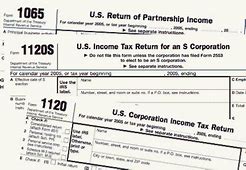Deciding to sell your business is an emotional decision. Once you think about selling then it is time to make the move – assuming all decision makers are on board with this decision. Once you decide that you want to sell then make the move. Marv Levy, the NFL Hall Of Fame Coach once said that “once a player thinks about retiring then he has already retired.” This statement by the former Buffalo Bills Head Coach and General Manager applies to business owners as well. Once you think about selling then you are already making an emotional move toward selling.
you want to sell then make the move. Marv Levy, the NFL Hall Of Fame Coach once said that “once a player thinks about retiring then he has already retired.” This statement by the former Buffalo Bills Head Coach and General Manager applies to business owners as well. Once you think about selling then you are already making an emotional move toward selling.
The first area to understand is that books and records are important. A business needs to be able to justify a price through tax returns, equipment values and inventory values. A pure “cash business” with no substantiating data is very difficult to sell. But in these “cash business” situations where the actual cash flow and declared cash flow are different, there are still ways to prove the entire cash flow through a second “book” or receipts.
The second area to understand is that you should keep the business running as is and avoid telling anyone you are selling. Any hint or leak that you are selling could be catastrophic to the business and the businesses’ future. Employees and customers are very good at noticing changes that may indicate a business is for sale. This could have a devastating result on the business.
Once the decision has been made to sell, you have to prepare various facets of your business before taking the step toward selling.
Here is a general list that you need to prepare:
- Up to 3 years of tax returns – including P&L statements and balance sheet if Available / Needed for sales and cash flow verification for buyer and if needed for financing source.

- Three years monthly sales / Used to show trends, seasonal, holidays, events etc.
- Equipment list & value of equipment at present day cost (plus replacement cost) / Present day value for valuation and replacement cost for start up reference comparison.
- Value of inventory at your cost (not retail) / Your cost for valuation.
- List of accounts receivable if applicable / Can be valued in sale price or retained by seller.
- Value of real property (if included in the sale) / Land and building value if owned and included in sale.
- Copy of the lease if business is on leased real property / To show terms, assignability and options to buyer.
- Franchise agreement if a franchise business / To verify terms, transfer fees and disclosure of franchise.
Here is what you DO NOT want to do:
- Discuss with anyone that you are going to sell – confidentiality is of utmost importance / Once an agreement is signed to buy you will have ample time to properly advise staff and clients prior to close.
- Change the business models or daily operations / Lowering average inventories, eliminating marketing and under staffing creates red flags.
- Take cash out of the business that will alter subsequent financial statements / 10/k today will cost you 15/k – 30/k in your asking price.
